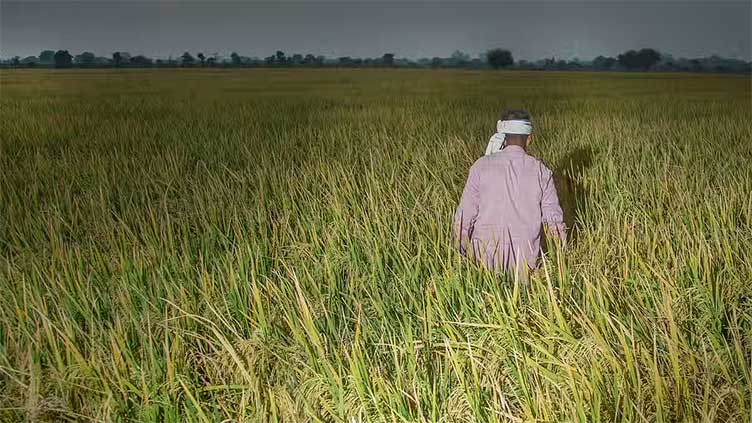PM Kisan package to improve farmers' economic conditions

Pakistan
PM Kisan package to improve farmers' economic conditions
PESHAWAR (Web Desk) - Leaving behind the negative effects of the devastating floods this year, Kamal Khan (25) a poor farmer of village Mohib Banda Nowshera was able to complete cultivation of wheat sowing in his three acres of the field after receiving the much-needed assistance under the Prime Minister’s Kisan (farmers) package.
“I had suffered great financial loss after my standing crops were destroyed by the record-breaking floods of highest velocity during August-September in River Kabul. I was facing great financial hardship to arrange money for the purchase of seeds, fertilizers, and cultivation-related expenses during the post-flood situation,” he told APP.
The PM’s Kisan package has been proved a blessing for hundreds of thousands of farmers and wheat growers who were unable to cultivate wheat due to financial constraints, said Kamal Khan, who started farming in his native village to feed his family after the untimely death of his father Hamayun.
He termed the Prime Minister’s Kisan Package as a great relief to hundreds of thousands of flood-hit farmers and wheat growers in Khyber Pakhtunkhwa.
On October 31, 2022, Prime Minister Shehbaz Sharif announced a gigantic Kisan Package worth Rs1800 billion under which subsidized loans on easy terms were being provided to flood-affected farmers and wheat growers.
Ikhtair Wali Khan, PMLN KP Spokesman, and member provincial Assembly told that people of all provinces including Khyber Pakthunkhwa largely benefited from the package.
He said till November 2022, agricultural loans of RS664 billion have been distributed among farmers, which was 36 percent more compared to the same period of the previous financial year under the Prime Minister Kisan Package.
A record increase of Rs400 billion was made this year compared to the previous year in the package while a subsidy of over 10 billion rupees was being provided to waive off mark-up fees on loans availed by farmers of flood-affected areas.
The package also includes loans worth RS50 billion for the youth of rural areas of the country including merged tribal districts of KP who wanted to invest in the agriculture sector. As many as Rs6.4 billion were being provided as subsidies on a markup of loans to facilitate farmers besides promoting an agro-based economy to make the country self-sufficient in food.
The Labour Force Survey of 2017-18 conducted by the Pakistan Bureau of Statistics has revealed that 39 percent of the country’s labor force was engaged in agriculture including 30.2 percent male and 67.2 percent female while the agriculture sector contributes 18.5 percent to the country’s GDP, which was comparatively low than Pakistan’s agriculture potential.
Muhammad Naeem, Assistant Professor, Department of Economics, University of Swabi said that the agriculture sector was the lifeline of the country as the industries were largely dependent on the green sector.
Out of a total area of 79.6 million hectares in the country, he said that 22.1 million hectares were cultivated while the rest of the territory was a cultural waste, densely populated forests, and rangelands.
In the wake of the post-18th amendment in 2011, he said that the total agriculture development spending has started decreasing as the provinces did not play their due role in taking initiatives meant for increasing crop yields.
Ikhtiar Wali Khan said the government after a successful negotiation fixed the new price of DAP as Rs11,250 per bag by providing a negotiated subsidy of 2500 rupees per bag with fertilizer producers under the package.
He said five billion rupees was reserved to provide subsidy on the markup of loans to facilitate landless peasants of flood-affected areas, adding about 1.2 million bags of certified seed were provided to farmers of flood-hit areas.
Small and Medium Enterprises (SMEs) are being encouraged to invest in the Agriculture sector, he said, adding SMEs interested in investing in this sector were enabled to get loans on subsidized rates for which RS6.4 billion were fixed besides Rs10 billion for modernization of the scheme.
He said there were around 300,000 agriculture tube wells operating in Pakistan, and the federal government has planned to solarize all of them for which a massive subsidy would be provided in electricity-related matters at a flat rate of 13 rupees per unit for agricultural tube wells to facilitate farmers.

